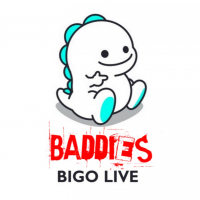Twitch, YouTube, and Kick Rules: What Everyone Needs to Know
In today’s world, streaming has become a full-fledged profession. Millions of people around the globe follow live broadcasts on platforms like Twitch, YouTube, and Kick. However, to stream safely and effectively, it is important to understand the rules of each platform. Even minor violations can lead to account suspension, income restrictions, or content removal. In this article, we will go over the rules of Twitch, YouTube, and Kick in detail, and also provide practical tips to ensure your streaming is both successful and safe.
Twitch: Basic Rules and Restrictions
Twitch is the largest streaming platform for gamers and creators. The main rules of Twitch are outlined in the Community Guidelines and Terms of Service. They are aimed at protecting users and creating a safe space for streaming.
What is prohibited on Twitch:
- Violence and dangerous behavior. Any calls for violence or dangerous actions during a stream may lead to a ban.
- Sexual content. Twitch strictly regulates nudity and sexually explicit scenes.
- Copyright infringement. Using music or video without a license is strictly prohibited.
- Prohibited substances. Displaying drugs or other illegal substances is not allowed.
- Trolling and harassment. Insults, threats, and harassment in chats and streams are banned.
What streamers should know:
- Age restrictions: registration is possible from 13 years old, but monetization streaming starts at 18.
- DMCA compliance: always check music, clips, and graphics for copyright.
- Using chatbots and moderators helps control audience interaction and prevent violations.
YouTube: Rules for Live Streaming
YouTube Live is part of the world’s largest video platform, combining videos and streaming. YouTube has its own strict rules, outlined in the Community Guidelines and Monetization Policies.
Main restrictions on YouTube:
- Adult content. Videos with explicit sexuality or violence may be blocked or demonetized.
- Copyright. Any music, video, or graphics protected by copyright without a license are prohibited.
- Dangerous and shocking content. Videos with injuries, violence, or dangerous challenges are subject to removal.
- Spam and fraud. Promoting questionable schemes or deceiving the audience is strictly prohibited.
What streamers need to consider on YouTube:
- Age restrictions: 13+ for viewing, 18+ for monetization.
- Monetization through the Partner Program requires compliance with all community rules and standards.
- Use your own content or licensed content for safe streaming.
Kick: New Rules and Opportunities
Kick is a relatively new platform rapidly gaining popularity among streamers. It is focused on monetization and is beginner-friendly, but safety rules and copyright compliance remain mandatory.
Prohibited content on Kick:
- Violence and harassment. Any aggressive behavior may lead to account suspension.
- Copyright violations. Using other people’s content without permission is prohibited.
- Spam and fraud. Promoting suspicious links or fake campaigns is unacceptable.
- Illegal materials. The platform does not allow the display of drugs, weapons, or banned substances.
What makes Kick unique:
- High payouts to creators: up to 95% of revenue from subscriptions and donations.
- Support for diverse content: from gaming to IRL and music streams.
- Simple moderation and account protection system.
- Built-in tools for analytics and audience engagement.
Practical Tips for Safe Streaming
To ensure your broadcasts are both safe and successful, follow these recommendations:
- Always check content for copyright, especially music and video materials.
- Use moderators or chatbots to manage the audience.
- Study the rules of each platform, even if you only work on one.
- Regularly update your knowledge of new features and policy changes.
- Do not ignore complaints and notifications from the platform — this will help you avoid bans.
Conclusion
Understanding the rules of Twitch, YouTube, and Kick is the key to successful and safe streaming. Each platform has its own features and requirements that must be followed to maintain audience, income, and reputation. By following the rules and applying practical tips, you can not only avoid bans but also build a long-term career in the world of online broadcasting.
Our Services for Streamers
Our Services for Content Creators











